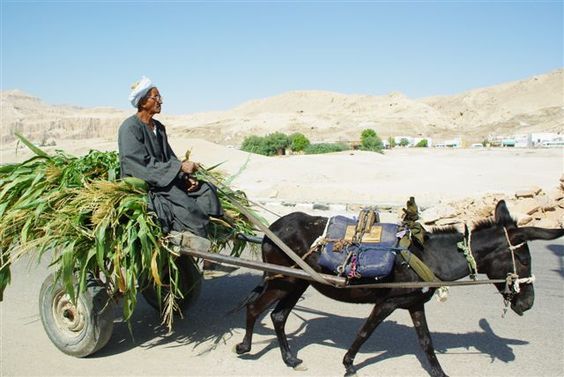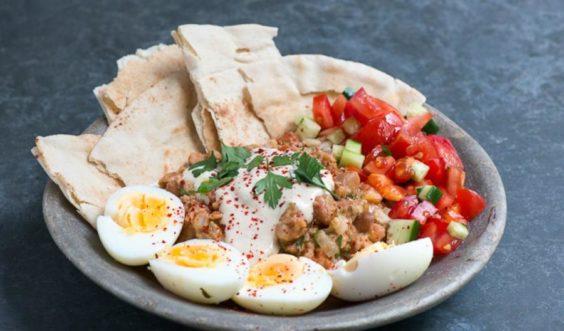Hello Dear Readers,
Welcome back to the blog! Thank you so much for your support in reading these articles, it really encourages me to keep writing! Because of your encouragement from the last blog, I thought it would be fun to continue with our topic considering more SHOCKING or INTERESTING things regarding Egyptian mentality, and culture. To be honest, where to begin? My husband and I laughed a lot coming up with these ideas which seem so normal here and have in fact become normal for me to see and aren’t so crazy, but at the very least I hope they are entertaining for you and give you more perception of people’s realities here. So let’s begin, let’s dive in!


1. Marrying Your Cousin
Yup, that’s right. You read correctly. It is still COMPLETELY normal here for cousins, even of Witnesses to marry one another and it’s accepted and viewed as normal here. It’s just like Bible times, better to keep the inheritance and closeness within the family and not with strangers, some might say it is encouraged. Perhaps this is also not odd in other cultures, but for me, I was so shocked, it took me awhile to get over it actually. I told Karim if he introduced me to anyone who had that situation not to tell me. *cringe*

2. For the Love of Organs!
Egyptians love to eat, and eat everything! They eat everything from the brain, to the eyeballs to the intestines and other things I don’t really care to mention. I know other cultures also eat various parts, I just wasn’t expecting it here. Though actually I really should have. As I’m writing about this, Karim is giving a tour explaining in detail the role of Canopic jars in tombs of mummies. They are the urns used to hold the organs of the mummies for the after life. Yummy right? So, I guess the obsession with organs has kept from history. I have a personal theory, that this is why the cases of Corona aren’t so high as they could be considering the size of the population because they’ve already built up a very strong immunity to all sorts of disease.

3. Gift Returning/Giving
A very interesting part of the culture that I learnt about was when I gave a sister a new shirt that didn’t fit me. I liked it, but it was a bit big on me, so I thought it would look great on her. This is so normal in the states, if you have something in good condition that you know you won’t use, it’s normal to offer it to a friend or relative. In Egypt though, gift giving has taken on a whole new meaning for me. When I gave the sister this shirt she thanked me, AND THE VERY NEXT WEEK she gave me a shirt! I was surprised, but accepted it and learned later from Karim that it’s somewhat culturally expected to get a gift to said gift giver. This applies to other things as well, you invited me to your wedding, I’ll remember to invite you to mine. There is some kind of mental tally that is kept. Kind of like when women remember that their cousin’s sister-in-law wore that same dress 4 years ago. This is a nice feature in concept, but also puts a lot of pressure! What if I just want to give someone something or get them a gift and really don’t want anything in return? Or I know that they are in a tough economical situation? Anyways it’s been something I give a lot more thought to. Also, along that note there is something else about gifts too, it is not common to give something that has been used, even if it’s in excellent condition. A lot of emphasis is put on presentation, like packaging and brands. I wouldn’t go so far to say as it’s not allowed, but you might offend some if you offer them a used gift, you’d have to know someone well whether or not this would bother them. The thought is something like: ‘Why would I want this if you don’t? What’s wrong with it?’ And also because of this issue, hoarding can be a bit of a problem….. NEVER GIT RID OF ANYTHING

4. Prepping Children for Eternity
All mothers care for their children, but there is really something about the Arab/ Egyptian mom or parents that needs to be described in detail. Basically, Egyptian parents want to set you up for life. Regardless of their economic background, it’s very common to have a savings for your children here, that they have access to before you die. Or parents will buy a plot of land or apartment that you can move into with your spouse when you get married, but only when you get married haha! That’s a side note, it’s not common to move out of your parent’s house in Egypt, perhaps even looked down upon, until you get married for both men and women. I suppose in most western countries, we are somewhat expected to have more independence at an earlier age, regardless of married or not. And Arab moms have a cute side past time hobby of buying household items 3+ years before you get married so that you’re all ready 🙂 so you can find some storage space, SOMEWHERE in the house filled with a plethora of plates, a variety of appliances, serving dishes, wine glasses, trays, all bought on sale of course. Now that’s A LOT of love!
5. Prejudice and Misconceptions
I suppose this isn’t really shocking, as all countries have some form of prejudice and pre-formed ideas, but I might elaborate on the ones specifically in Egypt. They assume that if you are from a westernized country, you must naturally be rich, and some even might feel culturally inferior. And people from African countries or Asian countries they think are less than them. This even goes so far as to permeate within the culture of Egyptians with Egyptians that you are not as educated, civilized, etc if you are from Upper Egypt (South Egypt) or if you don’t have a Cairo accent.

6. Traditional Vs. Western Life
So this is something that is really surprising about Egypt, it’s an absolute juxtaposing clash of lifestyles. You have people who do still use carts and animals like donkeys for hauling around fruits and vegetables and still wear the typical galabeyah (traditional Egyptian work dress), yet at the same moment a man who works in a suit and bank from 9-5 will drive by in his BMW. Their perceptions, experience, and lifestyle can be completely different, dependent on if they were raised in country or city, and with wealth or not. This is somewhat the case in other cultures too, but it’s much more noticeable here in Egypt.
7. Don’t worry, I’m not sorry
So there is for the majority of people in western culture, though there are exceptions, the idea of apology, especially if you damage someone else’s property or if it’s really your fault for something, that you’d like to apologize. The words for I’m sorry in Egyptian is “Ana Asif”. However you almost NEVER hear this. What you hear will typically be a word widely used for almost all circumstances in which a person is at fault, and that word is: “Malesh”. Now let’s explore the in depth meaning of this word. The true meaning of the word is: ‘don’t worry, or it’s not a big deal.’ However it’s almost always applied to situations in which it is a big deal, and you’d like an apology. For instance, if someone hits your car, the first word will be; Malesh. If you get a paint job done in your house, and it’s wrong; Malesh. If you payed for something, and the product/ company didn’t deliver, and you don’t insist on your rights, the word is coming and you know it; Malesh. This whole idea actually stems from the Muslim idea that God predestines everything including what happens to you, so Malesh that I ran over your cat.
8. Al Hamdolele ( pronounced HUM-DOO-LAY-LAY)
This word deserves it’s own article. One of the most common expressions in Egypt it means: “Praise God.” Or the idea it can give is that, thank God that he didn’t let it go beyond this. This is a common response when someone asks how you are. Even if your life is in a really bad situation, or something terrible has happened to you, people will still use this as a response.

9. Facebook IS the internet
This one is so cute. Many that live in this day and age here, really believe that Facebook is the internet. Talk about good marketing for Facebook right? Egyptians are totally addicted to Facebook. For instance if you tell them that you want to show them a website, they’ll open their phone to Facebook and point and say: ‘Where is it?’. Nobody asks for your email, no, they ask for your Facebook.

10. The Theory of Relativity
Maybe you know from some travel experience that time is relative in the Mediterranean countries as well as African countries and this definitely holds true for Egypt! People consider the times around 11-4 as ‘the morning’ and will still say Good Morning to you at that time. The afternoon is from 4 to about 8 or 9 and everything with 9 upwards is then the evening. You can see this in the stores, and on the streets, nothing much happens before 11 AM. Typically because of the hot climate, things stay open very late, and so likewise the day starts late too. If you’re used to getting up earlier, this little adjustment might take some time.
Alright everybody, I think that just about wraps it up for more SHOCKING/SURPRISING things from Egypt. Please let me know which point was most interesting to you or if you have any further insights to add in the comments below. Please take care and stay safe!
~ Gamila


All very interesting, thanks for sharing! Facebook is the internet, hilarious🤣
This was an awesome post! Super shocking / interesting hahaha it’s always really cool to learn something about another culture and it’s amazing how even expressions in a language can carry so much culture inside of them.
Gamila,
It is nice to have a good chuckle reading your blog. It is so interesting to hear about Egypt, especially when we are dodging snow storms over here!
Lots of love to you and your hubby!
Dave & Colleen
Sounds like another culture I know…😂
Such an interesting article and I loved the GIFs😂. Well done!
That was really fascinating. The gift giving one in particular. The idea that you might be inadvertently offending someone or putting them under financial pressure from a gift. It is so good to learn understand and respect local customs. It is also lovely that they prepare their children financially for independence. What an interesting place to live and serve Jehovah. Thanks for sharing x
“Malesh”. It’s perfect! Just say it after every cultural situation you bungle.
That was a fun read. Now I will catch up on the first 10 that I should have read first. Sorry er … I mean malesh!
My husband is also Egyptian, so I’ve seen many of these first hand. Marrying the cousin was shocking to me when I first heard about it, but I didn’t realize witnesses did it too! 😄